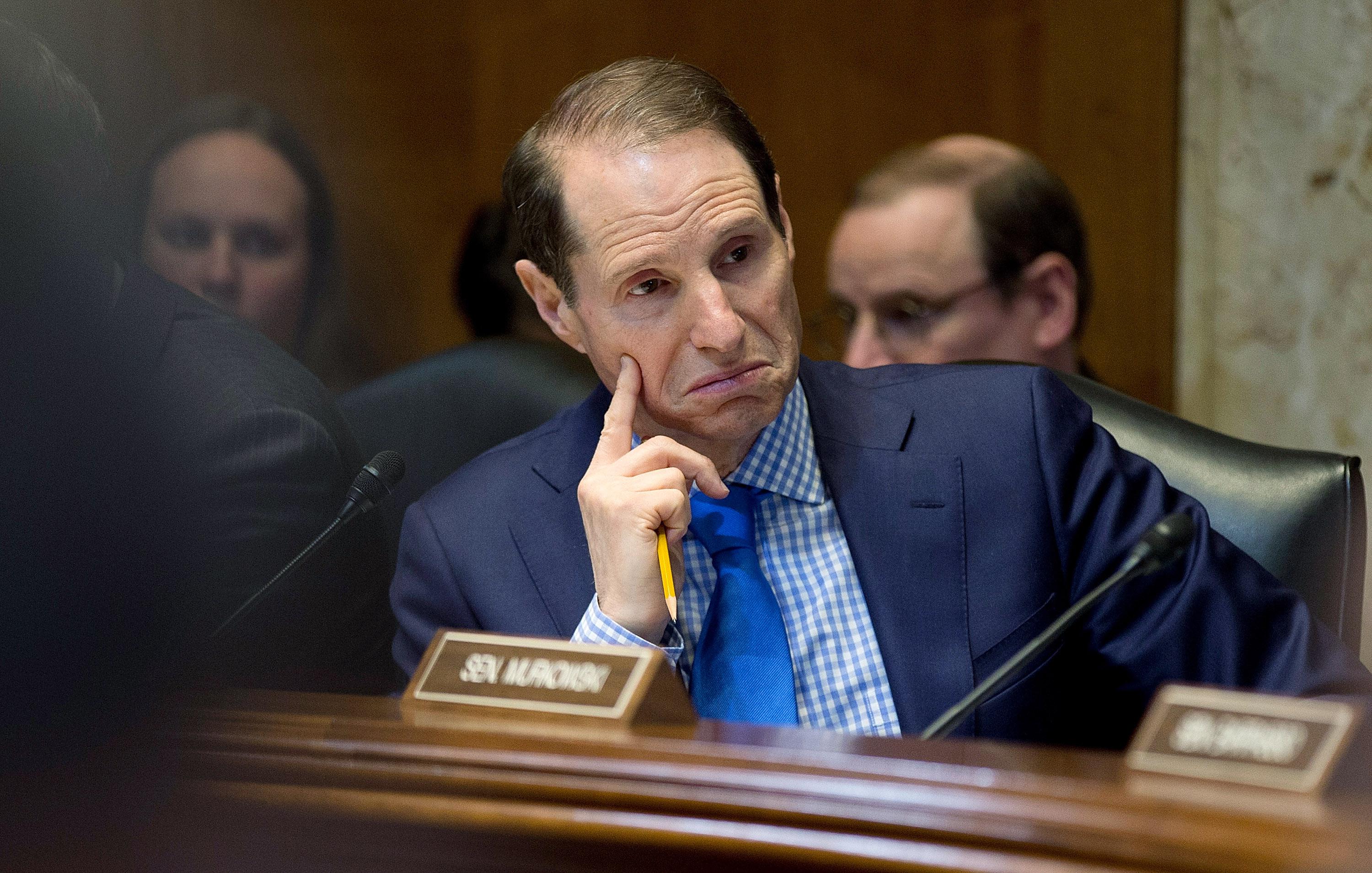After years of lengthy speeches to empty Capitol Hill chambers (and slumbering C-SPAN viewers), one of the Senate’s most well-known and determined critics of government surveillance, Oregon Democrat Ron Wyden, finally has his moment. Before this week’s major leak of evidence of NSA surveillance on American citizens, Wyden, along with Senate ally Mark Udall, waged a nearly-unwinnable fight to roll back these programs with the distinct challenge of being legally prohibited from talking about them.
The near impossibility of their task is illustrated quite nicely by this Washington Post interview with Jennifer Hoelzer, a former member of Wyden’s press team who spoke about the challenges of getting out the word on an issue that’d be a serious crime to discuss even in the broadest terms. Making Hoelzer’s job that much more difficult was the fact that her boss often was barred from giving her the very details she’d need to paint the full picture to the press and the public. You should check out the full interview, but here are a few snippets to whet your appetite.
On the difficulties of talking about something you can’t talk about:
“There’s so much you can’t say. And sometimes people risk not saying anything because they don’t want to violate classification. If they did, Ron would lose his seat on the committee, and [intelligence committee staffer John Dickas] would lose his clearance, and they couldn’t conduct oversight. In this case, I don’t have clearance, and I didn’t know what I couldn’t say. So it’s like minesweeper. You just have to ask questions to try to get the outlines of what they’re not telling you. Because they can’t tell you what they’re not telling you.”
On not being able to use adjectives(!):
“You can’t characterize intelligence. Adjectives characterize. So we would say something like, ‘there is a disconnect between what people think is illegal and what is illegal.’ But you can’t just say there’s this program and it’s wildly illegal. That would characterize it. So it leaves people who want to conduct oversight at a disadvantage. The administration can declassify anything it wants at any time. They can declassify things and characterize them. We can’t.”
On how they tried to get creative:
“One of my favorites was during the debate over renewing the PATRIOT Act. We did this 20-minute speech on the history of intelligence programs where the government kept something secret and then it came out and blew up in their face. We had a big picture of Ollie North behind us. And the point we made was this won’t stay secret forever, and then people will lose their faith in you. We said it would be better to come out and explain it yourself. But we didn’t talk about the actual program.”
Go read the full interview here, or check out Hoelzer’s first-person piece over on HuffPo. Slate’s Emma Roller has more on Wyden and Udall’s crusade to make the NSA’s phone snooping policy go public here.
Read more on Slate about the NSA’s secret snooping programs, and follow the @slatest team on Twitter.
